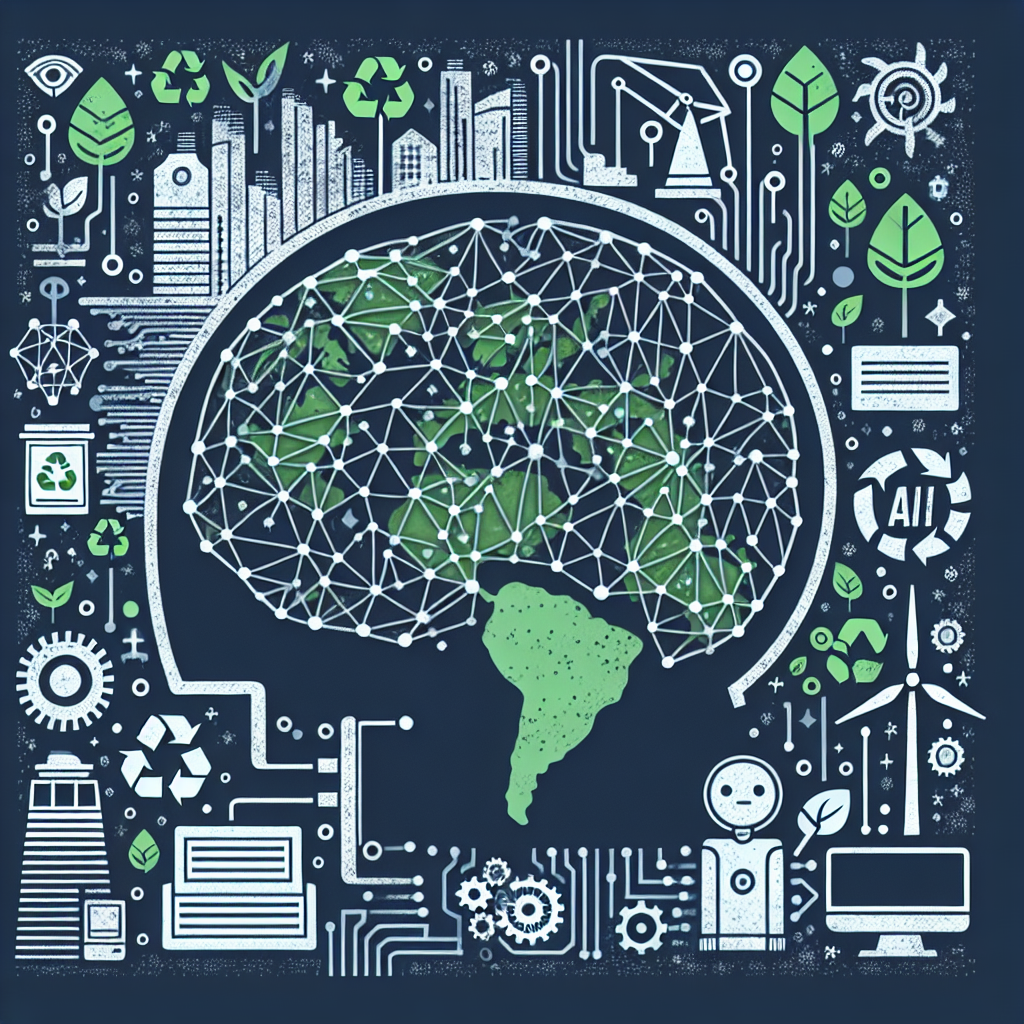In recent years, the concept of sustainable supply chains has gained significant traction as companies around the world seek to minimize their environmental impact and promote social responsibility. One of the key challenges in building sustainable supply chains is the need to ensure resilience in the face of disruptions such as natural disasters, geopolitical events, and pandemics. Artificial intelligence (AI) has emerged as a powerful tool to help companies build resilient networks that can adapt to changing circumstances and minimize disruptions.
AI technologies such as machine learning, predictive analytics, and optimization algorithms can help companies identify risks in their supply chains, predict potential disruptions, and develop strategies to mitigate them. By leveraging AI, companies can improve their forecasting accuracy, optimize inventory levels, and enhance decision-making processes to ensure the smooth flow of goods and services through their supply chains.
One of the key benefits of using AI for sustainable supply chains is the ability to improve visibility and transparency across the entire supply chain network. By collecting and analyzing data from various sources such as sensors, IoT devices, and external databases, AI can provide real-time insights into the status of shipments, inventory levels, and production schedules. This enhanced visibility allows companies to identify potential bottlenecks, optimize routes, and allocate resources more efficiently, leading to cost savings and improved sustainability outcomes.
Another key advantage of using AI for sustainable supply chains is the ability to automate routine tasks and processes, freeing up human resources to focus on more strategic initiatives. For example, AI-powered systems can automatically generate demand forecasts, optimize transportation routes, and recommend alternative suppliers in case of disruptions. By automating these tasks, companies can reduce the risk of human error, improve efficiency, and enhance overall supply chain performance.
Furthermore, AI can help companies proactively identify and address sustainability issues in their supply chains, such as carbon emissions, water usage, and waste generation. By analyzing data on environmental impact and social responsibility metrics, AI can help companies track their progress towards sustainability goals, identify areas for improvement, and develop strategies to reduce their overall environmental footprint. This can not only help companies meet regulatory requirements and consumer expectations but also contribute to long-term business success and resilience.
In addition to improving sustainability outcomes, AI can also help companies enhance their risk management practices and build more resilient supply chain networks. By analyzing historical data, predicting future trends, and simulating various scenarios, AI can help companies identify potential risks, assess their impact, and develop contingency plans to mitigate them. This proactive approach to risk management can help companies minimize disruptions, reduce costs, and improve overall supply chain resilience.
Overall, AI has the potential to revolutionize the way companies build and manage sustainable supply chains. By leveraging AI technologies to improve visibility, automate processes, and enhance decision-making, companies can achieve greater efficiency, resilience, and sustainability in their supply chain operations. As the global business landscape continues to evolve and face new challenges, AI will play an increasingly important role in helping companies navigate uncertainty, adapt to change, and build more sustainable supply chain networks.
FAQs:
1. How can AI help companies improve sustainability in their supply chains?
AI can help companies improve sustainability in their supply chains by analyzing data on environmental impact and social responsibility metrics, tracking progress towards sustainability goals, and identifying areas for improvement. By leveraging AI technologies such as machine learning and predictive analytics, companies can develop strategies to reduce their overall environmental footprint and enhance their social responsibility practices.
2. What are some of the key benefits of using AI for sustainable supply chains?
Some of the key benefits of using AI for sustainable supply chains include improved visibility and transparency, enhanced risk management practices, automation of routine tasks, and proactive identification of sustainability issues. By leveraging AI, companies can optimize their supply chain operations, reduce costs, and improve overall sustainability outcomes.
3. How can companies get started with implementing AI in their supply chains?
Companies can get started with implementing AI in their supply chains by identifying their key business objectives, assessing their current technology infrastructure, and developing a roadmap for AI implementation. It is important for companies to collaborate with AI experts, data scientists, and supply chain professionals to ensure successful deployment and integration of AI technologies into their supply chain operations.

